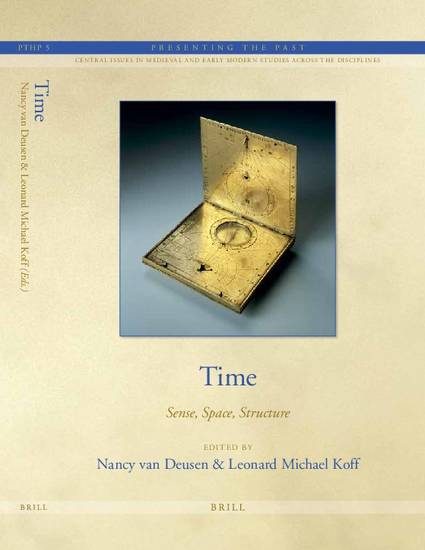
Contribution to Book
Providence, Temporal Authority, and the Illustrious Vernacular in Dante’s Political Philosophy
Time: Sense, Space, Structure
(2016)
Abstract
Drawing primarily upon Dante’s three major philosophical treatises (De vulgari eloquentia, Convivio, and Monarchia), this essay explores how Dante’s ethico-political philosophy operates within the crucial tension between the phenomenology of time as the condition for the possibility of human moral development and yet also as, metaphysically speaking, the privation and imitation of eternity. I begin by showing that, in the De vulgari eloquentia, Dante’s understanding of the poetic and rhetorical function of the illustrious vernacular is tied to his political philosophy in a way that depends upon a rich but ultimately unresolved tension between (a) the demand that only an atemporal, unchanging vernacular would be suitable for the tasks of universal monarchy and (b) the recognition that only a temporal, localized, and changing illustrious vernacular could possibly bring about the existence of the universal monarchy. In the second half of the essay, I will turn to Dante’s treatment of the providential grounding for the independence of spiritual and temporal authority in Convivio and Monarchia. I will argue that Dante’s understanding of divine providence provides common justification for the temporal and spiritual authorities whose independence he otherwise insists upon. Finally, drawing on the letter to Cangrande della Scala (the authorship of which is disputed), I will discuss how, for Dante, the providential ground for the legitimacy of temporal authority can only be discerned through the allegorical interpretation of history itself. In light of my discussion of these themes in Dante’s political philosophy and its dependence on his understanding of divine providence, I will conclude with a brief reflection on how Dante’s understanding of divine providence might help us better appreciate important aspects of the neglected legacy of Renaissance humanism in the history of early modern philosophy.
Keywords
- Dante,
- Monarchia,
- Convivio,
- De vulgari eloquentia,
- political theology
Disciplines
Publication Date
2016
Editor
Nancy van Deusen and Leonard Michael Koff
Publisher
E. J. Brill
Series
Presenting the Past
ISBN
978-90-04-31002-5
DOI
10.1163/9789004312319_012
Citation Information
Jason Aleksander. "Providence, Temporal Authority, and the Illustrious Vernacular in Dante’s Political Philosophy" LeidenTime: Sense, Space, Structure Vol. 5 (2016) p. 231 - 260 Available at: http://works.bepress.com/jason-aleksander/3/
